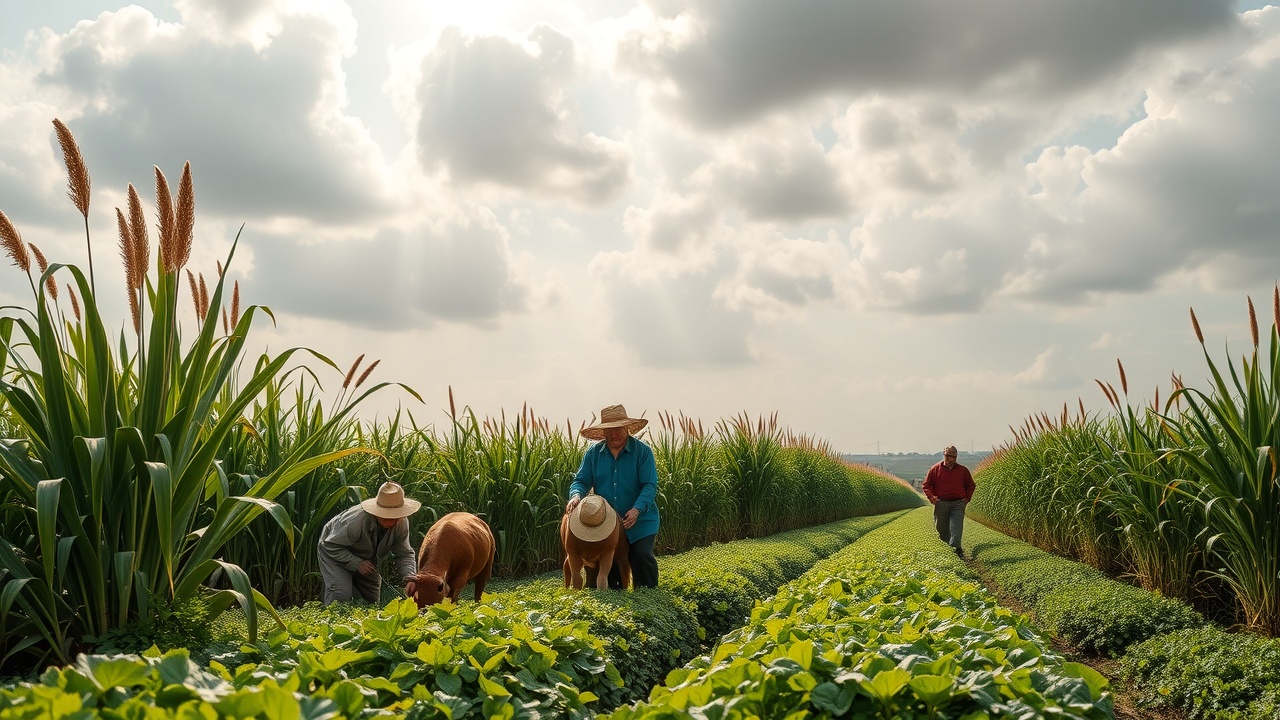
Members of Parliament want the government to postpone changes to farmer inheritance rax reliefs
Pressure is mounting on the government to postpone contentious inheritance tax reforms that will affect farmers in the upcoming year.
When Chancellor Rachel Reeves reduced agricultural property relief (APR) for inheritance tax in her Autumn Budget, farmers were incensed.
It is anticipated that the changes will take effect in April 2026 and may also impact investors who have acquired land for their portfolio as part of their IHT planning.
In order to avoid inheritance tax or at least lessen the liability, farmers and landowners have been able to transfer their assets and land to the following generation since the 1980s.
The government wants to limit APR as part of plans to balance the public finances because its cost has increased by 335 million, or 105%, since 2020 to 665 million.
Despite Treasury claims that most farms will not be impacted, activists and rural organizations have cautioned that the changes will ruin family farms.
Now, members of parliament have intervened to pressure the government to postpone the reforms.
The changes were implemented without sufficient consultation, impact analysis, or affordability analysis, according to the cross-party Environment, Food, and Rural Affairs Committee.
Committee chair Alistair Carmichael stated: "We have observed that Defras's communications with farmers have been subpar, containing unclear and occasionally conflicting messaging. There hasn't been enough consultation. Policies that impact farmers have been announced without adequate thought, justification, or explanation of their implications. "The government should prioritize farmers in its plans to ensure food security as well as to preserve and repair the environment. Farmers must plan for the future when making business decisions, but it's unclear what kind of environment they are working in right now.
"Farmers cannot be expected to rethink their operations on a whim; they urgently need clarity, certainty, and advance notice of changes." Rebuilding trust through sincere communications with the sector is Defra's top priority.
What does relief for agricultural property mean?
Currently, if an estate has farmland and assets and has been actively farmed for more than two years, it will receive 100% IHT relief through APR.
50% of land owned between March 10, 1981, and September 1, 1995, is eligible for the relief.
Since land, buildings, tractors, and crops can all be very valuable assets, this is a huge relief for farmers.
The relief's idea is to allow future generations to carry on without having to sell because of a high IHT bill.
Additionally, business assets that are a part of a deceased person's estate are eligible for business property relief (BPR).
Reeves stated in her budget that after April 6, 2026, the relief would only be available to the first one million people.
This holds true for reliefs related to both business and agricultural property.
Above this threshold, landowners will pay inheritance tax at a 20 percent rate instead of the usual 40 percent.
Unlike other inheritance taxes, this one can be paid in installments over a ten-year period without incurring interest.
It is in addition to other exemptions like the 175,000 main residence allowance, the 325,000 nil-rate band, and the tax-free transfer of assets to a spouse.
Rural organizations have protested the changes, claiming that the government has violated its manifesto promises to assist farming communities.
Alternatives to the clampdown on agricultural property relief.
According to the Treasury, most farms will not be impacted, and two farmers may be able to pass on up to £3 million without incurring inheritance taxes, depending on their specific situation.
But according to the committee's report, the government has not paid attention to industry concerns and ought to postpone reforms until it has had a chance to gather more data.
The Treasury's own impact assessment has also drawn criticism.
About two-thirds of farms are valued at more than one million dollars, according to the National Farmers Union (NFU), which has made this claim based on Defra data.
The number of farms that are likely to be impacted by the changes to APR and BPR can vary based on the data used, according to the Institute of Fiscal Studies (IFS).
For instance, the number of taxpaying estates is related to HMRC data, whereas current farms and farming enterprises are related to data from other organizations evaluating the change's possible impact.
Additionally, Defra figures from the Farm Business Survey only apply to farms with at least a minimum level of output, whereas inheritance tax returns submitted to HMRC apply to all estates claiming agricultural relief.
MPs have proposed solutions such as raising the tax-free APR/BPR combined cap to 20 million, but imposing a clawback period on any land sold after it has been passed on.
In order to give elderly owners time to restructure their estates before the law is reinstated, the report also suggests making lifetime transfers of eligible business or agricultural property, which are typically set at seven years, immediately exempt.
"To give farming businesses more time to plan for succession and seek the right professional advice, the government should postpone announcing its final APR and BPR reforms until October 2026, with an effective date of April 2027," the report concludes.
"This time should be used by the government to consult on its proposed changes, carry out an impact and affordability assessment, and think about policy measures and mitigations to lessen any unforeseen negative effects.
In addition to the clawback proposed by MPs, Tom Gauterin, director of the law firm Freeths, stated that there are numerous other ways to target investors who use farmland as a tax shelter.
"The government listening and acknowledging that their initial policy didn't work as intended would not be shameful," he said. It is unclear if they plan to deal with the harsh realities of policymaking.














Leave a comment on: Government urged to reconsider restrictions on rural assistance as part of inheritance tax reforms